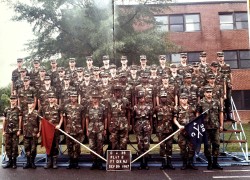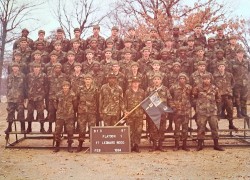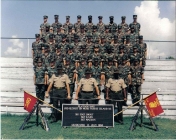Special Duty Summary. Supports the Airman and Family Readiness Center (A&FRC) overall functional mission to ensure programs and services are responsive to the needs of service members, DoD civilians and their families. Develops and provides personal and family readiness services related to pre-deployment and reintegration education and consultation to Total Force Airmen and their families. Develops, exercises, and implements disaster response support plans.
Duties and Responsibilities:
The principal military advisor to the A&FRC director and staff on matters regarding readiness and deployment for active duty, Guard and Reserve, DoD civilians, and family members. Assists service members and families with advance planning and preparations for deployments and extended separations, to include developing and making available educational materials and information. Briefs and provides information and referral services to families in the absence of the military member. In conjunction with other Integrated Delivery System (IDS) agencies and A&FRC staff, develops reintegration materials and on-going services for all eligible beneficiaries. Assists with Airman and Family Readiness support groups and other related activities. Assists A&FRC staff and IDS agencies to develop readiness publications, plans, marketing, education, and training. Provides advocacy for the unique educational needs of military children and families during deployments and assists in ensuring school personnel are aware of the unique issues and stressors impacting military children.
Ensures development and implementation of a written A&FRC readiness response plan and its incorporation into installation operations planning to support national and local emergencies, natural disasters and Noncombatant Evacuation Operations (NEO). Attains and maintains in-depth knowledge of base contingency/operational plans related to force readiness with a specific focus on personal/family readiness planning, and serves as consultant to A&FRC and local leadership on exercising those plans. Briefs and assists military members, DoD civilians, and families during emergencies and natural disasters, providing assistance during contingency operations. Is an integral member of the Emergency Family Assistance Control Center (EFACC) as defined by local and Air Force requirements. Liaison to installation and community organizations for on-base contingency and disaster preparedness planning to include deployment lines and mass casualty exercises. Provides military, civilian and family assistance and support before, during, and after local or national emergencies, natural disasters, mobilization, deployment, separation, or evacuation (to include NEO, repatriation, and Safe Haven staging operations).
Responsible for marketing Air Force Aid Society community enhancement programs directly affecting personal and family readiness. Promotes the A&FRC programs/services at Chiefs’ groups, first sergeant groups, commanders’ calls, and other forums as required.
Responsible for data collection and utilization of the AF Family Integrated Results and Statistical Tracking (AFFIRST) data system within the A&FRC.
Special Duty Qualifications:
Knowledge. Knowledge of personnel management, professional support functions, base deployment mission/issues, Air Force organization and administration is mandatory.
Education. For entry into this SDI, completion of high school or general educational equivalency is mandatory. Some college is desired.
Training. For retention of this SDI, one of the following training requirements is mandatory: Completion of the Air University A&FRC basic training course within 12 months of initial assignment in this SDI. Completion of prescribed training directed by the Air Force Office of Airman, Family and Community Readiness Policy (USAF/A1SA).
Experience. Not Used.
Other. The following are mandatory for entry into this SDI: Qualification in any AFSC at the 7- or 9-skill level, and grade of E-6, E-7, or E-8. Competency to write effectively and speak professionally, clearly, and distinctly as demonstrated by Reading Aloud Test administered in accordance with AF Pamphlet 48-133, Physical Examination Techniques. Familiarity and understanding of a wide range of Air Force programs affecting personnel policy, housing management, education, and other family programs. Demonstrated typing capability at a minimum of 25 words per minute (wpm). For entry and retention of this SDI. No recorded evidence of mental and emotional instability. Never received nonjudicial punishment under Uniform Code of Military Justice (UCMJ) resulting in either reduction or suspended reduction in grade, or correctional custody for offenses involving substantiated drug abuse defined in AFI 36‑2706, Military Equal Opportunity Program, acts of larceny, wrongful appropriation, robbery, burglary, housebreaking, or misconduct in combat defined in UCMJ. Never been convicted by a civilian court of a Category 1, 2, or 3 offense, nor exceeded the accepted number of Category 4 offenses. Category 3 and 4 traffic offenses alone are not disqualifying. NOTE: Categories of offenses are described and listed in AFI 36-2002, Regular Air Force and Special Category Accession, Uniform Guide List of Typical Offenses. Never received substantiated abuse findings defined in AFI 40-301, Family Advocacy Program. Must maintain an Air Force Network License according to AFI 33-115, Vol 2, Licensing Network Users and Certifying Network Professionals.
-
You are here:
- Home
- References
- Military Occupation Codes
- USAF
- 8X - Special Duty
- 8C000 - Airman and Family Center Readiness NCO

Search the Site
Contribute
USAF AFSC Codes
- 2G - Logistics Plans (1)
- 2M - Missile & Space Systems Maintenance (3)
- 2P - Precision Measurement Equipment Laboratory (1)
- 2R - Maintenance Management Systems (2)
- 2S - Supply (1)
- 2T - Transportation & Vehicle Maintenance (7)
- 2W - Munitions & Weapons (3)
- 3D - Cyberspace Support (11)
- 3E - Civil Engineering (12)
- 3H - Historian (1)
- 3M - Services (1)
- 3N - Public Affairs (5)
- 3P - Security Forces (Military Police) (1)
- 3S - Mission Support (4)
- 4X - Medical (17)
- 4Y - Dental (2)
- 5J - Paralegal (1)
- 5R - Chaplain Assistant (1)
- 6C - Contracting (1)
- 6F - Financial (1)
- 7S - Special Investigations (OSI) (1)
- 8X - Special Duty (20)
- 9X - Special Reporting (1)
- 2E - Electronics Systems (8)
- 3A - Knowledge Operations Management (1)
- 3C - Communications Computer Systems (6)
- 1A - Aircrew Operations (9)
- 1C - Command and Control Systems Operations (8)
- 1N - Intelligence (6)
- 1P - Aircrew Equipment (1)
- 1T - Aircrew Protection (2)
- 1S - Safety (1)
- 1U - Unmanned Aerospace Systems (1)
- 1W - Weather (2)
- 2A - Manned Aerospace Maintenance (17)
- 2F - Fuels (1)
Privacy Policy | Terms of Service | Sitemap
(C) 2009-2021 The Military Yearbook Project
Contact: webmaster-(at)-militaryyearbookproject.org



